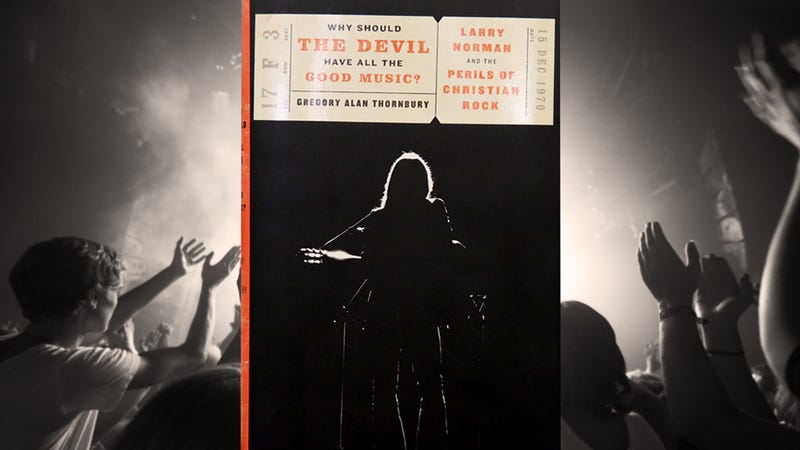The political warriors from the Freedom Center’s events are Trump’s newest fighters.
March 23, 2018

Fifteen years ago, North Korea banned John Bolton from the useless nuclear talks. “Such human scum and bloodsucker is not entitled to take part in the talks,” its foreign ministry declared.
North Korea had freaked out because then Undersecretary of State Bolton had called Kim Jong Il, a “tyrannical dictator” and life in the socialist hellhole, a “hellish nightmare”.
Bolton would later describe that as one of his proudest moments.
Back then, North Korea had defended the move by pointing out that Bolton’s views differed "from the recent remarks of the U.S. president". And so it could claim that he didn’t represent the United States.
Fifteen years later the game has changed. Kim Jong Il is dead and the President of the United States has called his successor, “little rocket man”, a “madman” and “short and fat”.
John Bolton very definitely does represent the views of this president.
And to prove it, President Trump has appointed him as his new National Security Adviser.
Bolton knew then that appeasing the North Korean dictatorship would never work. Bill Clinton’s bad North Korean deal paved the way for the even worse Iran deal. It took a decade and a half for an administration to actually listen to him. And his appointment sends a clear signal to North Korea.
The media had been buzzing that McMaster would be replaced by a more conciliatory figure on North Korea. The establishment even had their man all lined up. Trump also sent them a clear message.
President Trump is tired of the failed establishment foreign policy of appeasement. Secretary of State Rex Tillerson was replaced over the Iran deal. The new lineup of Pompeo heading the State Department and Bolton cleaning house at the NSC shows Trump is ready to get tough on the Mullahs and the Norks.
McMaster spent his tenure at the National Security Council ruthlessly forcing out Trump supporters while protecting Obama holdovers. His obstructionism enabled the leakers undermining the president. He refused to call out Islam, put a Hamas apologist on the Israel desk, and blocked the investigations of the eavesdropping and unmasking efforts aimed at the future president by Obama associates.
Now that’s over and done with. And the worst of the Democrats are already ranting and raving.
Rep. Keith Ellison, Rep. Adam Schiff, Rep. Gerry Connolly, Rep. Betty McCollum and many other lefties don’t want Bolton. Ellison called him, “dangerous”, Rep. Boyle dubbed him a “dangerous radical”, Rep. Bass accused him of “peddling hatred of Muslims”, and Rep. Don Beyer wailed, "Trump desperately needs tempered and measured voices around him, Bolton is neither of those things."
John Bolton is actually tempered and measured. He’s been tempered by his struggles against a bureaucracy more interested in protecting careerists and their agendas than defending America. And he has been measured by the President of the United States as a voice he wants around him.
Bolton is also a voice that the Freedom Center and its supporters have wanted around them.
The new National Security Adviser was a favorite speaker at Freedom Center events from California to Texas to Florida. From the Restoration Weekend to the Wednesday Morning Club, he was always brimming with confidence in this country’s strength and outrage at the betrayals of her leaders.
At a 2014 Restoration Weekend, Bolton powerfully indicted Obama for sending a "signal of American weakness" and urged the rise of a presidential candidate who would understand that, "a strong America is the best way to protect our interests and preserve the peace". Now that has finally come to pass.
Bolton is not the only familiar face from the Center in this administration. A Washington Post hit piece from last year bitterly complained that, “Since its formation in 1988, the Freedom Center has helped cultivate a generation of political warriors seeking to upend the Washington establishment. These warriors include some of the most powerful and influential figures in the Trump administration: Attorney General Sessions, senior policy adviser (Stephen) Miller.” And more are joining their ranks.
Larry Kudlow, the new White House economic adviser, has known David Horowitz since the founding of the Freedom Center and is a former member of the Center’s board. He joins Sessions, an Annie Taylor award recipient from the Center, Miller and now Bolton.
And they’re not alone.
Secretary of the Interior Ryan Zinke spoke at a Wednesday Morning Club.
Rep. Jim Bridenstine was nominated to head NASA. Senator Patty Murray attacked him for his appearances at "conferences at the David Horowitz Freedom Center". Rep. Bridenstine was indeed a popular Restoration Weekend speaker whose 2016 speech was about why Trump won.
“What other candidate would have talked about how Hillary Clinton attempted to silence and shame the victims of Bill Clinton? What other candidate would have brought up the fact that Hillary Clinton said that they were part of a vast right-wing conspiracy?” he asked.
And which other president would have made Bolton his National Security Advisor? Which other president would have picked Sessions, Miller, Kudlow, Zinke, Bridenstine and so many others?
It takes a warrior to pick the political warriors who want to fight to win. And who understand that standing up to bullies, thugs and tyrants is less likely to lead to a fight than surrendering to them.
Bolton and Kudlow are part of a vigorous new wave of picks by President Trump. They’re part of his strategy to remake the administration to better reflect his vision, his strategy and his message.
The David Horowitz Freedom Center has spent decades waiting for a man who would lead the fight. And it’s happy to see many of the political warriors who have rallied the troops at its weekends, who lifted spirits in the years when things were hard and convinced us that victory was on the way, in his army.
The fight is what it has always been: to leave America greater, happier, more prosperous, stronger and more secure than it has been in generations. There was a time when this vision was on the decline. There was a time when malaise and appeasement ruled the day. We were told that we had to cringe before dictators, accept the impoverishment of our economy and the narrowing of our horizons.
President Trump rejected that defeatism. As President Reagan had rejected it before him. And Bolton, Kudlow and Bridenstine represent vital elements of that rejection of despair and embrace of hope.
The common qualities that they share are optimism, determination and a willingness to fight.
Those are also the defining qualities of the David Horowitz Freedom Center, of Front Page Magazine, and of you, our readers, the men and women whose comments enlighten me and whom I have met in person at countless Freedom Center events, including our annual Restoration Weekend.
We believe that America can be great again. And we are willing to fight for it.
There was a time when that was a minority view. Now it’s becoming the majority consensus. There was a time when many took it for granted that we shouldn’t upset dictators or go big on the economy.
Fifteen years ago, North Korea got its way. That time is over.
President Trump’s choice sent that message to North Korea. But it also sent it to the appeasement lobby. The era of American weakness is over. The age of American greatness has begun.



